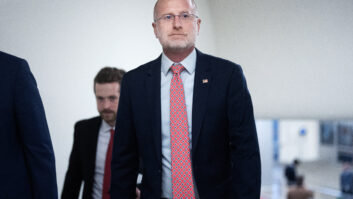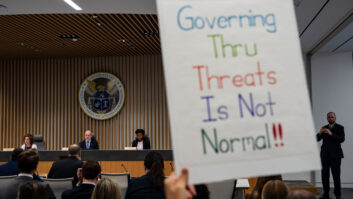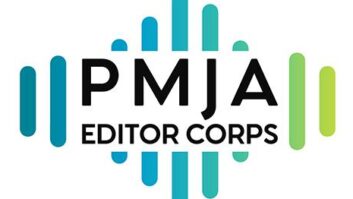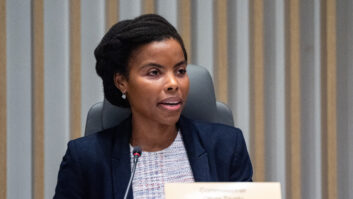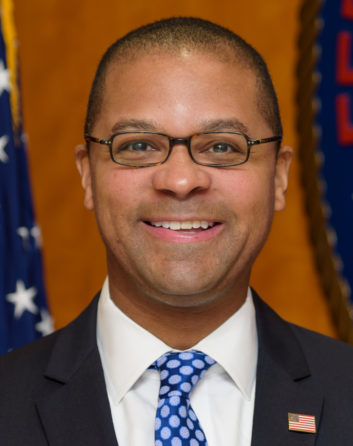 “America’s broadcasters should look like America.”
“America’s broadcasters should look like America.”
That was FCC Commissioner Geoffrey Starks, expressing “particular concern [about] the persistent lack of diversity in broadcast media ownership, and among its rank and file.”
The commissioner has been on the job for about nine months and is one of two Democrats on the five-member panel; he spoke Tuesday at the Media Institute Free Speech America Gala. Starks said that the FCC’s controlling statute “demands that we distribute [broadcast] licenses in a way that prevents too many from winding up in the same hands and promotes ownership by women and people of color. This is important. The capacity of broadcast media to empower and inform is indisputable, and it is critical that those exercising this power represent all of us, not a mere privileged or anointed few.”
However, he said, the commission has, “largely and over many decades,” failed in meeting its statutory goals and obligations in this regard. “This isn’t conjecture or political posturing. It isn’t even an opinion. It is a fact borne out by our data.” He noted that of 1,300 full-power TV stations licensed, only 12 were owned by African Americans.
Starks said the FCC currently has an opportunity: “As the Third Circuit Court of Appeals observed in its most recent media ownership decision, Prometheus v. FCC, the commission can and must do better in addressing the impact of its regulatory efforts on the ability of women and people of color to own stations. No longer can it rely on bad data and analysis while ignoring its obligations. The court sent back this FCC’s latest deregulatory efforts and demanded that we get the data and perform the analysis necessary to ensure that we are fully meeting our statutory requirements.”
However, FCC Chairman Ajit Pai, head of the Republican majority on the commission, has been harshly critical of the court and of its latest decision. Pai said last month that for 15 years, the Third Circuit has blocked attempts to modernize regulations to “match the obvious realities of the media marketplace.”
Starks on Tuesday also called for the FCC to “redouble” its Equal Employment Opportunity efforts. “For 15 years, the commission has had an open rulemaking proposing to continue a decades-old data collection on the diversity of the broadcast workforce. And for 15 years, while we’ve been stuck in neutral, we’ve elicited zero visibility on whether station management and news teams reflect our communities. We cannot fully engage on this issue when our ability to understand the problem is compromised.”
He said new research, including disparity studies identifying past discrimination in licensing, could be critical to addressing the concerns of the court “and finally making good policy in this space.”
Earlier in his remarks, Starks expressed ardent support for a free press. “The American people have a deeply ingrained urge to seek out and wade through what the Supreme Court has called a ‘multiplicity of information.’ That’s a good thing because it is essential to our democracy that the American people go through the process of hearing from a wide range of sources, ideologies and viewpoints. … What we need, then, is a press that pursues unvarnished facts and, above all else, truth.”
Starks was nominated by President Trump and was confirmed by the Senate in January 2019.
[Subscribe to our newsletter and get it delivered right to your inbox.]


